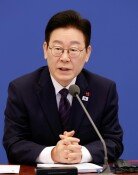Businesses outlook remains negative for eight months
Businesses outlook remains negative for eight months
Posted June. 28, 2023 07:58,
Updated June. 28, 2023 07:58
Companies’ outlook for Q3, which kicks off next month, remains negative. They have been managing in hopes that business conditions would improve in the second half of the year, but economic anxieties will likely continue, given the unchanged business environment. Slow exports due to China’s delayed recovery and consumer confidence impacted by inflation in advanced economies and Korea are the cause for the negative outlook.
A survey for Q3 on manufacturing companies across the country by the Korean Chamber of Commerce showed that Business Sentiment Index (BSI) was 91, which was 3% lower than in Q2. BSI higher than 100 means that there are more businesses with favorable outlooks, while lower than 100 indicates more companies with negative outlooks. BSI has continued to stay under 100 for eight consecutive quarters since Q4 last year, which contrasts with the government’s outlook that the economy has bottomed out. Six out of ten companies responded that they were not able to meet operating margin targets for the first half.
Companies are still struggling despite lower international oil/raw materials prices than last year. The sluggish recovery of the Chinese economy, which finds it difficult to achieve annual growth of 5%, is impacting export recovery. There is a chance that consumer sentiment, which is relatively better off, may worsen if the real estate market is impacted in the second half.
Under these circumstances, reviving business investment is the only way to overturn the situation. However, only 16 Korean multinational companies replied that they would be expanding investment in the second half, with 24% saying that they would scale back on investment, according to a survey by the Federation of Korean Industries. Around 60% said that they would be maintaining current investment levels. That is why the government decided to provide a temporary tax deduction for business investments this year, for the first time in 12 years. Vice Prime Minister Chu Kyeong-ho met with major business leaders to encourage “proactive investment.” However, companies remain hesitant. Inflation is still unstable, while advanced economies continue to raise interest rates, making it difficult to reduce base interest rates to encourage business investment.
We need to come up with drastic and unprecedented measures to drive change at companies. Temporarily easing stringent regulations in the Seoul Metropolitan area would be an effective way to induce investment. We need to drive innovative ideas such as reducing burdens related to family business succession for companies increasing investments. It will be difficult to see business investment recovery in such challenging business conditions unless the government and political circles actively seek to remove excessive regulations.



![[속보]李대통령, 이혜훈 기획예산처 장관 후보자 지명 철회](https://dimg.donga.com/c/138/175/90/1/wps/NEWS/IMAGE/2026/01/25/133223843.3.jpg)

![10초 뛰려고 60시간 비행…‘총알탄’ 김국영 “허탈감은 나의 힘”[이헌재의 인생홈런]](https://dimg.donga.com/c/138/175/90/1/wps/NEWS/IMAGE/2026/01/25/133224407.1.jpg)
